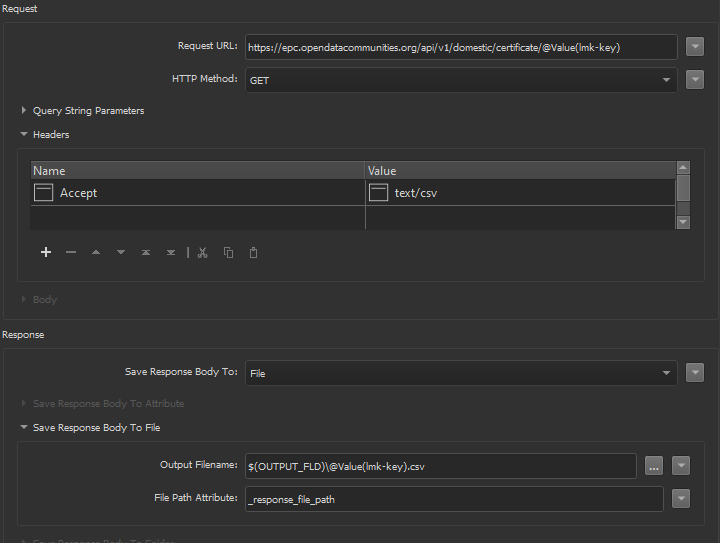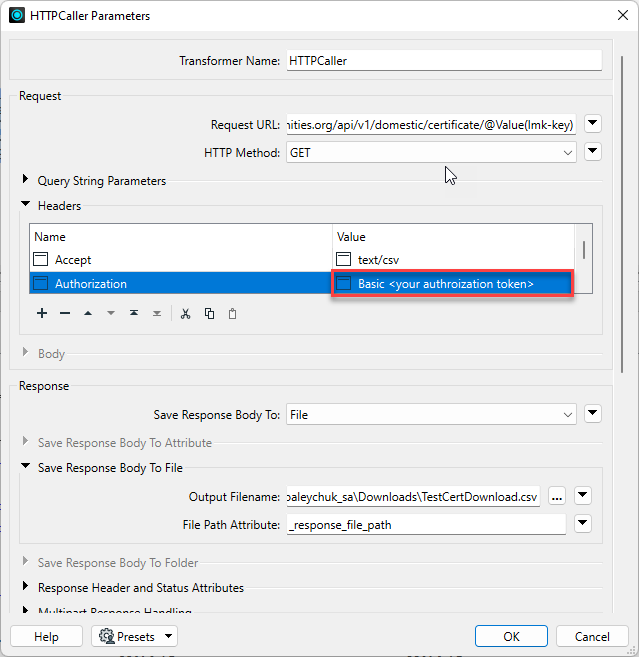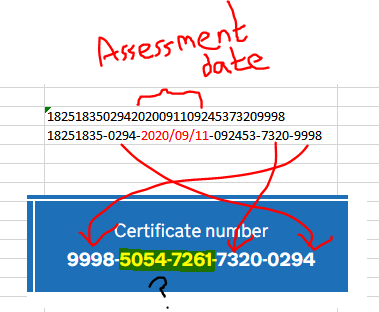In the UK we are able to download energy performance certificates from the following government website. Energy Performance of Buildings Data England and Wales (opendatacommunities.org)
Unfortunately you need to register to gain access but its very straightforward.
Within there is access to an api, which I have tried to use within FME to automate the downloading of these certificates for a local authority area, but always get a failure.
Can anyone else connect to this API and download certificates and if so how.
Sorry i cant paste the API but it changes for each user...
Regards











 and choose to save the response body to file
and choose to save the response body to file Please replace <your authorization token> with the appropriate value, but leave "Basic" Infront of the value. Let me know if you're still unable to download a certificate!
Please replace <your authorization token> with the appropriate value, but leave "Basic" Infront of the value. Let me know if you're still unable to download a certificate!





